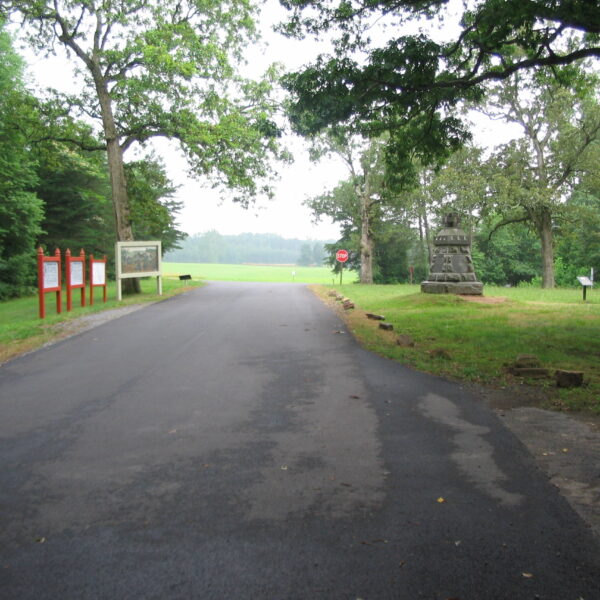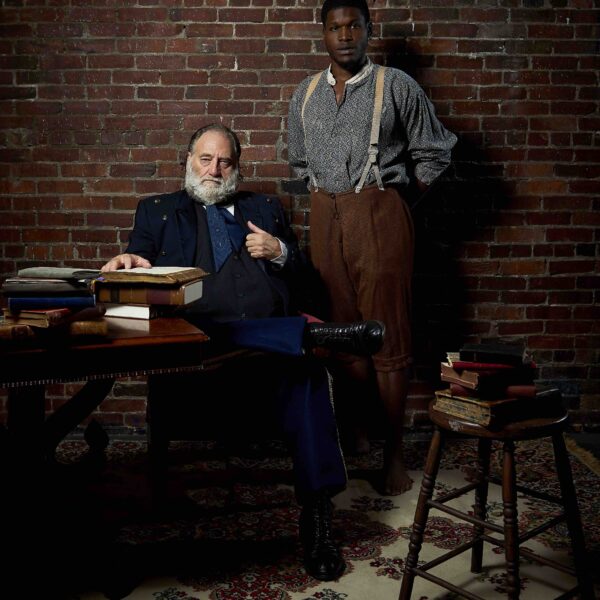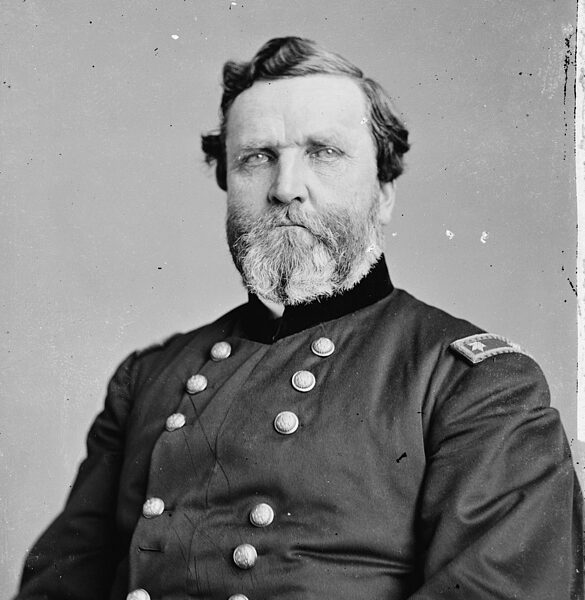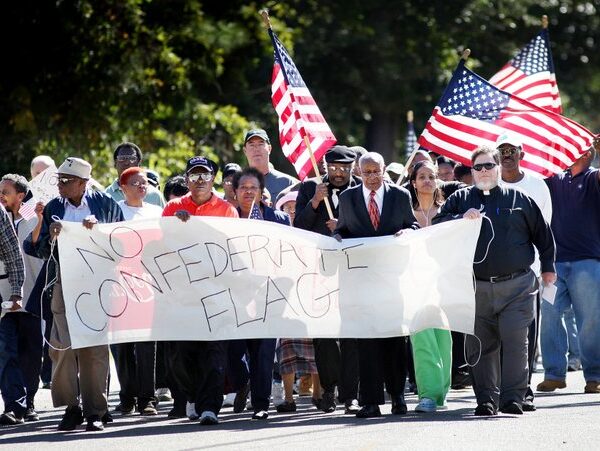 Stars and Stripes
Stars and StripesThe main gate sign at Fort Liberty—formerly Fort Bragg—in North Carolina
As an employee of the U.S. Army and the Department of Defense, I must support the official policies of these organizations, so what I write below represents my own personal thoughts that are not necessarily reflective of the U.S. DoD, the U.S. Army, or the U.S. Army War College.
The events of the last several years and the current trends in public attitudes—however they may be construed and from whatever source they may emanate—have created a different world than that which most of us grew up in. Regardless of how we may personally feel about these changes in society, they are not likely to cease and, coupled with astounding advances in technology, will continue to radically affect both governmental and personal attitudes about history, including the American Civil War.
In that light, the recent move to strip U.S. military bases, posts, and vessels of their Confederate-inspired names is not only unsurprising but also rather revealing about how public opinion can and does affect federal institutions. On a very basic level that can be a good thing, depending on how one falls on the political spectrum and views our system of governance. In a democratic republic in which the military is supposed to be apolitical, reflective of the society it serves, and sworn to protect the Constitution, we can nod in agreement with the underlying spirit behind the renaming process.
Plenty of pragmatic objections abound, such as the financial costs of rebranding such large posts as Fort Bragg (now Fort Liberty) or Fort Hood (now Fort Cavasos); the initial period of confusion, misinterpretation, and politicization by segments of the population; and concerns about the precedent set by renaming so many federal installations. My primary comment, however, deals with the thoughts of retired and currently serving military personnel and their units and is based on dozens of anecdotal conversations with students and former students over the past several years.
 National Park Service
National Park ServiceJohn Bell Hood, after whom Fort Hood, TX, was originally named.
One of the underlying principles of American intellectual property law is the concept of secondary meaning, i.e., the public comes to understand that words or terms may attain over time a new symbolic meaning or definition beyond—and sometimes quite different from—the original one. According to nearly all my students, this process has occurred at the renamed locations. Only a handful of them were fully aware of any Confederate affiliation in the original titles, and only two of them knew anything about the rebel officers in question. The vast majority simply knew they had been or were still stationed at these posts because they were the home base of their particular military unit.
Unquestionably, most of these locations received their original names because of the influence of local, state, and even national politicians in years past who had various motivations (some certainly rooted in the Lost Cause mythos). Thus, the initial titling process possessed a specific meaning in that historical context. But as the decades progressed and generations passed, any purposeful Confederate tinge became diluted and was replaced, in the minds of those who served in these places, with a new, powerful, secondary meaning: home.
Take, for instance, the words of “LTC X,” a former student of mine, who wrote to me over a year ago: “Fort Bragg is the headquarters and home post of my unit, the 82nd Airborne. I’ve been attached there, in one form or the other, for almost twenty years. I married my wife and raised my kids there and own a house nearby. I’ve got a lot of memories at that place.” “COL Y,” an unmarried officer, put it more succinctly, claiming that “I spent the best part of my military career at Fort Polk. Sure, it’s not paradise by any stretch of the imagination, and it’s got its share of problems. But it will always be home to me. Now I’m supposed to call it ‘Fort Johnson.’ That’s OK, I guess, but now it doesn’t sound like home.”
Retired “COL Z,” a native New Englander with a strong sense of historical mindedness (and no love for the Lost Cause), offered an even pithier statement: “All of these units posted at these now renamed forts have had their footing swept out from underneath them. What are they to do now? Go back and edit all their published unit histories and long-established post museums? No one’s thinking about the effect on the painstakingly built elan and pedigree of the units that are forever connected to the old (post) names.”
A few officers assumed a more stoic stance, arguing that the renaming of their home posts made no difference to them, either because they had long since moved on from it, their old unit underwent amalgamation, or they never grew attached to it. One colonel who recently took my Civil War elective was in favor of the name changes because he knew fully well about the original Confederate connections and now felt more at ease returning to Fort Benning (now Fort Moore).
Time will tell whether today’s active-duty military personnel and their families will undergo any real deleterious effects from the retitling process. I think how it affects them will vary greatly based on how long they lived at a certain installation, how many personal memories were created there, their political inclinations, race, and family heritage. How these changes impact their units will also take time to chronicle and assess. Will long-time association with a particular, recently renamed post create any noticeable effects in morale or esprit-de-corps? My initial thought, like it is on so many slippery issues, is “it depends.” The U.S. military prides itself on resilience, adaptability, and flexibility during transitions and it could well be that most units will follow along in that groove.
That said, I also believe it important to comprehend that there is much more at stake here than arguing about the Lost Cause and its lingering influences in a postmodern age. The secondary meanings these installations have come to embody for millions of U.S. military personnel and their families over many generations are important, valuable, and should unquestionably be heard, even after the Renaming Commission has done its work.
Christian B. Keller is Professor of History and Director of the Military History Program at the US Army War College in Carlisle, PA. His most recent book is Southern Strategies: Why the Confederacy Failed (University Press of Kansas, 2021).
Related topics: Confederacy




